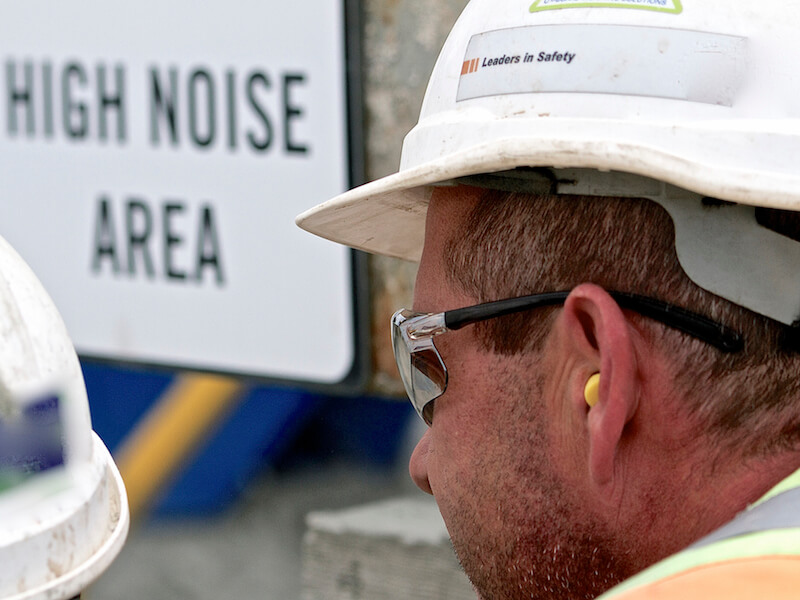
A loud workplace isn’t all that great for your ears (or your focus, for that matter). The health of your hearing can be negatively affected by even moderate levels of noise if you’re exposed to it for several hours every day. This is why questions like “what hearing protection should I use?” are worth asking.
Many of us probably didn’t even realize there were numerous levels of hearing protection. But when you take a moment to consider it, it makes sense. A truck driver won’t require the same amount of protection that a jet engine mechanic will.
Hearing Damage Levels
The fact that 85dB of sound can begin to damage your ears is a basic rule of thumb. Putting sound into context regarding its decibel level and how harmful it is, isn’t something most of us are used to doing.
Eighty-five decibels is about how loud city traffic is when you’re driving your car. That’s not a big deal, right? Actually, it’s fairly significant. It becomes a big deal after numerous hours. Because it isn’t just the volume of the noise that you need to pay attention to, it’s how long you’re exposed.
Common Danger Zones
It’s time to think about hearing protection if you are exposed to noise at 85 dB or more for 8 hour days. But that isn’t the only threshold you should be aware of. If you’re exposed to:
- 90 dB (e.g., lawnmower): injury will start to occur to your hearing if you’re exposed to this level of noise for 4 hours a day.
- 100 dB (e.g., power tools): Your hearing will be injured when exposed to this level of noise for 1 hour a day.
- 110 dB (e.g., leaf blower): Damage to your hearing occurs after 15 minutes of exposure to this noise level.
- 120 dB (e.g., rock concert): If you are exposed to this noise level for any amount of time, your hearing can be damaged.
- 140 dB (e.g., jet engine): This level of noise will cause immediate harm and most likely pain to your ears.
When you are going to be exposed to these volumes of sound, use hearing protection that will bring the decibels in your ears down below 85 dB.
Find a Comfortable Fit
NRR, which is an acronym for Noise Reduction Rate, is a scale used to determine the effectiveness of hearing protection. The outside world will become progressively quieter the higher the NRR.
It’s incredibly important that you choose hearing protection with a high enough NRR to effectively protect your hearing (and your workplace will typically make suggestions about what level will be appropriate).
But there’s another aspect to think about also: comfort. As it happens, comfort is incredibly important to keeping your hearing healthy. This is because you’re not as likely to actually use your hearing protection if it isn’t comfortable.
Hearing Protection Options
There Are Basically Three Options:
- Earplugs that sit just outside of the ear canal.
- Earplugs that sit within the ear canal
- Earmuffs.
There are advantages and disadvantages to each type of protection, but most of your hearing protection choices will depend upon personal preference. For some individuals, earplugs are uncomfortable, so earmuffs may be a better choice. For other people, the ability to put earplugs in and leave them in is a better solution (of course, at the end of the workday you will need to take them out for a good cleaning).
Find a Constant Level of Hearing Protection
Comfort is essential because any lapse in your hearing protection can result in damage. If you take your earmuffs off for ten minutes because they’re heavy and scratchy, your ears can suffer over the long run. So the most crucial decision you can make is to pick hearing protection that you’re comfortable leaving in place during your workday.
Investing in the degree of hearing protection you need can help keep your ears healthy and happy.
Call Today to Set Up an Appointment
